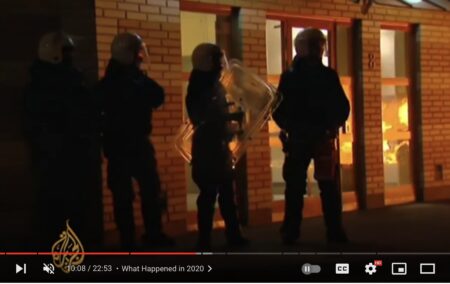Ruthless violence by criminal gangs is shattering the peace in Europe.
Sweden has Europe’s highest gun-homicide rate, and the military is helping police fight street gangs.
In Denmark, residents of the commune Christiania shut their famed open-air cannabis market after violent gangs took over.
In Belgium, armed security forces guard customs trucks carrying seized cocaine, to prevent criminals from stealing it back.
Dutch drug kingpin Ridouan Taghi was considered so dangerous that he was tried in a warehouse-turned-bunker in Amsterdam, guarded by hundreds of masked special forces and drones circling overhead to prevent a prison break. When the judges pronounced his guilt for involvement in five murders and two attempted murders, their faces were hidden and their names weren’t revealed.
Three of the state’s witnesses were shot dead in the streets of Amsterdam: Taghi’s brother, his lawyer and a well-known crime journalist.
The law enforcement arm of the European Union and the EU’s drug agency have said that several European countries are suffering unprecedented levels of drug market violence: killings, torture, kidnappings and intimidation.
The EU now considers organised crime a threat on a par with terrorism.
Europol attributes the violence to globalisation of the drug trade, a surge in coca cultivation in Colombia and fragmentation of the supply chain.
Since the 1970s, lax and contradictory drug laws have nurtured a criminal underworld. Recreational use of cannabis is legal, but production isn’t. Organised crime groups supply Dutch “coffee shops.” Gangs expand their incomes by trafficking cocaine and producing synthetic drugs.
In 2016, the head of a gang member was found in the window of an Amsterdam café.
In 2020, police discovered shipping containers converted into soundproof torture chambers equipped with pliers, blowtorches and a dentist’s chair with shackles.
[Photo: Screenshot from documentary about Sweden How Did One of the Safest Countries on Earth Develop a Huge Gang Problem?]

